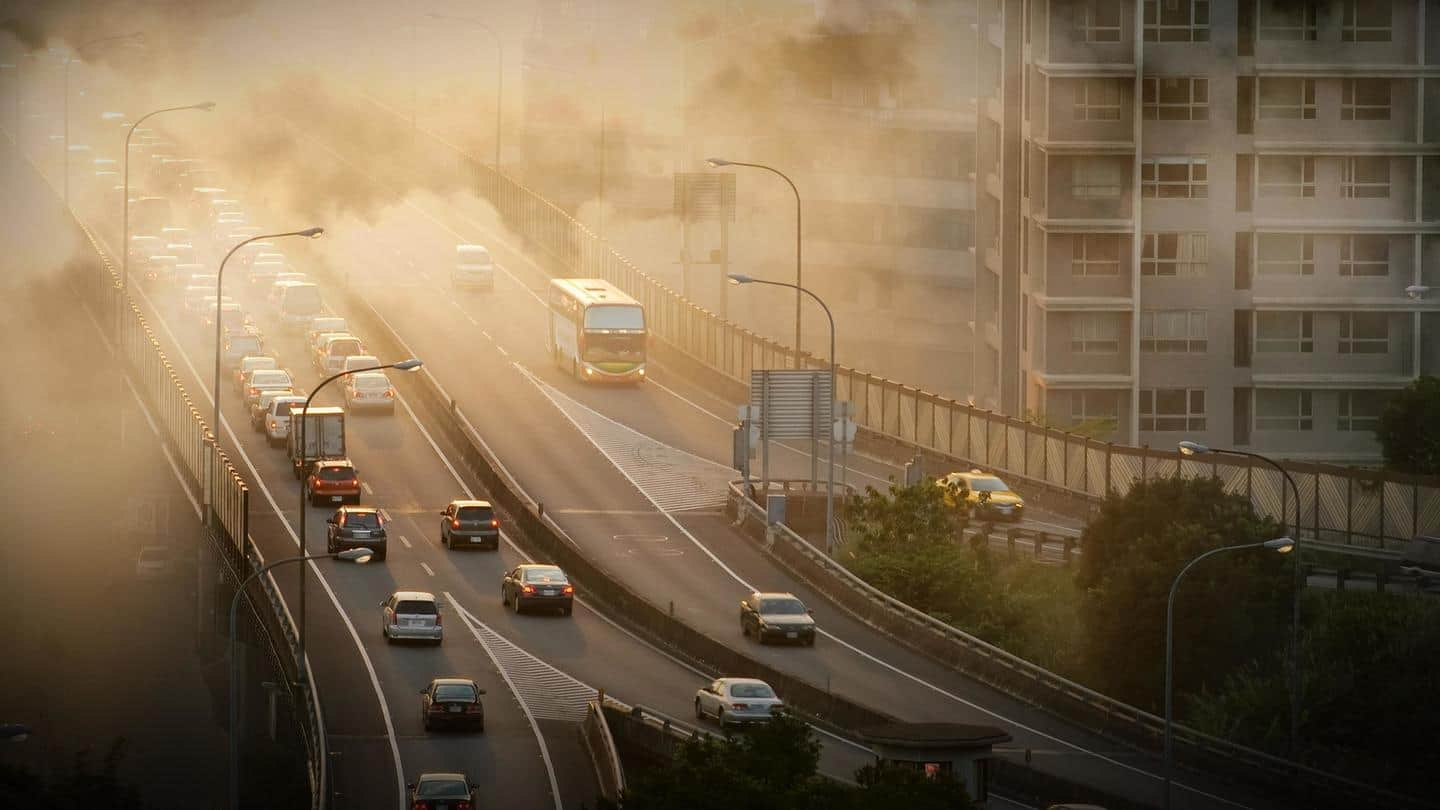
Delhi's air quality becomes 'very poor'; will it get worse?
What's the story
The air quality in Delhi plunged to the "very poor" category for the first time this season on Tuesday.
The 24-hour average air quality index for Tuesday in Delhi stood at 303. The same was reportedly 222.28 ("very unhealthy") in the Jantar Mantar area on Wednesday morning.
This comes amid concerns of further deterioration of air quality after Diwali night.
Context
Why does it matter?
Delhi's air quality depleted to "very poor" mere two days ahead of Diwali.
Reportedly, the majority of pollution was caused by local sources, and the contribution of stubble burning was just 6%.
The Ministry of Earth Sciences' Air Quality Early Warning System (AQEWS) had predicted that Delhi's AQI would deteriorate to the "very poor" category soon after Diwali.
Details
6% of PM2.5 due to stubble burning
The contribution of stubble burning to PM2.5 pollutants was only 6%, The Times of India reported.
The share of stubble burning was low due to "unfavorable winds" while the other pollutants were contributed by local sources, reported the air quality forecast system SAFAR.
Delhi's northwest region witnessed 3,971 farm fires on Sunday, the maximum this season, according to SAFAR.
Information
AQI to improve slightly in 2 days: SAFAR
Meanwhile, SAFAR maintained that the AQI in the national capital would witness a slight improvement in the next two days. The forecast is favorable was due to winds coming from the west and south-west direction, it added.
Diwali
Government's warning for Diwali
PM2.5 and PM10 levels in Delhi may get pushed to 250 micrograms per cubic meter and 398 micrograms per cubic meter, respectively, on Diwali night, the Ministry of Earth Sciences' Air Quality Early Warning System (AQEWS) predicted.
Diwali is celebrated by bursting firecrackers.
The acceptable limits for PM2.5 and PM10 concentration is 60 micrograms per cubic meter and 100 micrograms per cubic meter, respectively.
AQI
'AQI to dip after Diwali'
Delhi's air quality is likely to "deteriorate on November 5 and 6 significantly and may reach the upper end of the 'very poor' category," according to AQEWS.
PM2.5 would be the predominant pollutant during this period, it said.
Notably, an AQI between 0-50 is considered "good," 51-100 "satisfactory," 101-200 "moderate," 201-300 "poor," 301-400 "very poor," and 401-500 "severe."
Information
Delhi's AQI over the weekend
The average 24-hour AQI in the national capital is 281 ("poor") on Monday, the Central Pollution Control Board's data showed. The AQI on Sunday and Saturday was 289 and 268, respectively, according to the data.
Complaints
Only 11% air-quality complaints resolved
The Graded Response Action Plan came into force in Delhi on October 15 to deal with the city's worsening air quality.
However, only 11% of air quality-related complaints have been resolved so far by agencies in Delhi and the NCR region, the CPCB data showed.
Agencies in NCR have only resolved 47 of the 424 complaints received between October 15 and October 30.